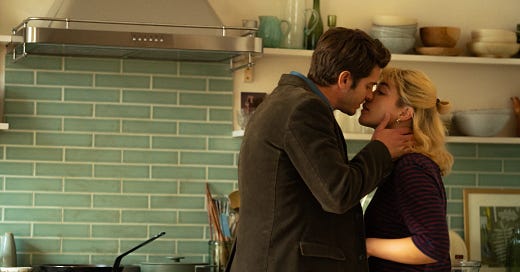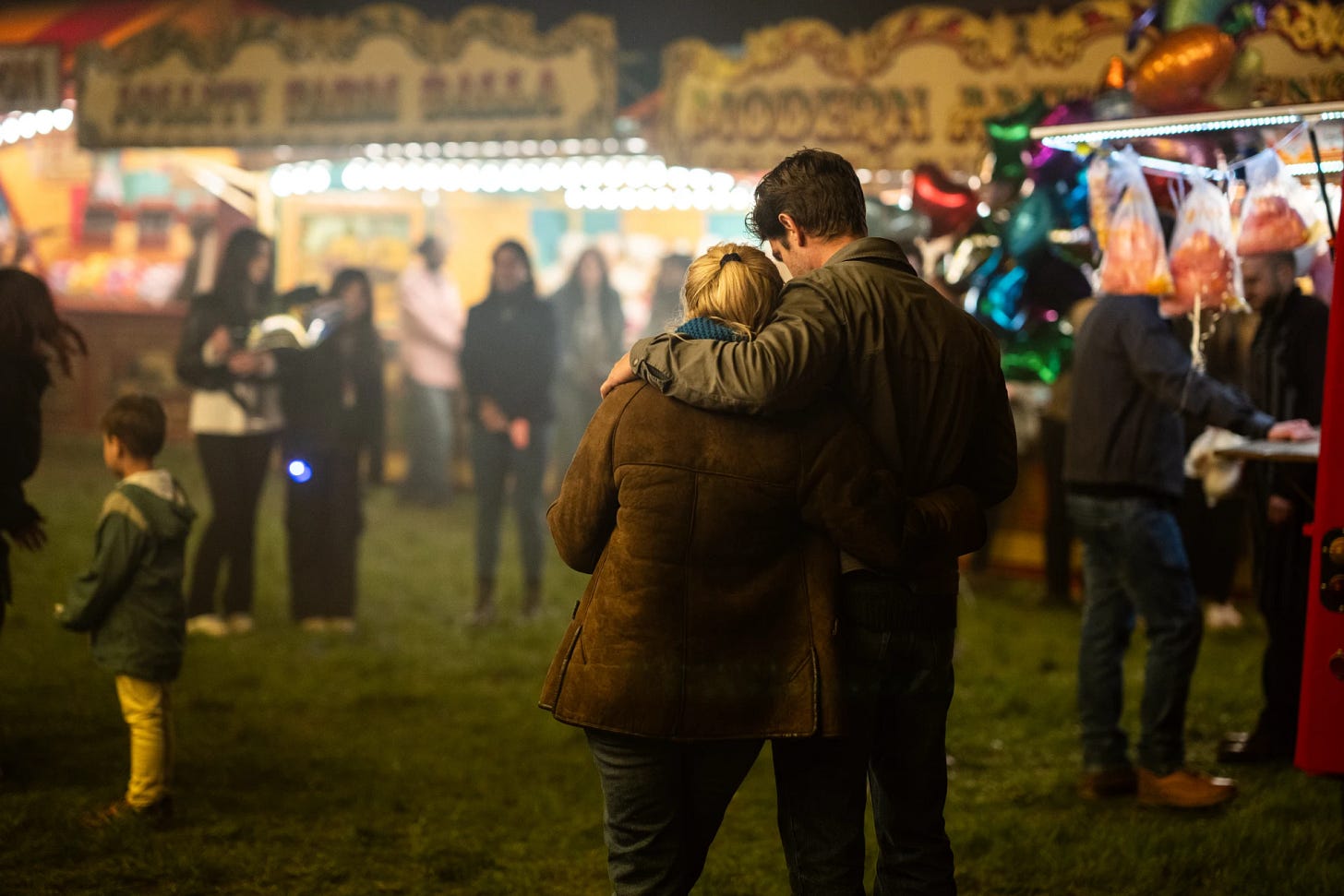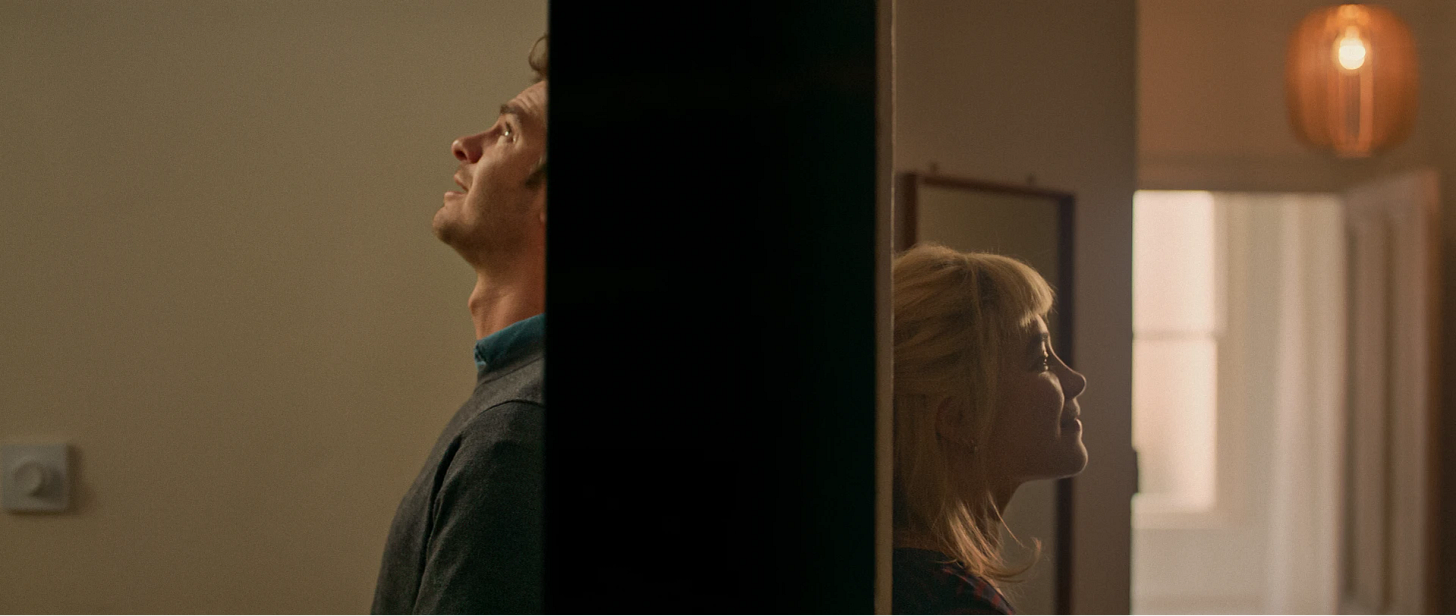We Live in Time wastes no time getting right to the story it will tell. Director John Crowley and screenwriter Nick Payne take the audience on a years-long journey in the lives of the main characters.
Told in a non-linear fashion, we learn about the lives of Almut (Florence Pugh) and Tobias (Andrew Garfield). Almut is an up-and-coming chef, and Tobias is a Weetabix salesman. An unexpected accident brings them together just as Tobias is ending his first marriage. From there, the film shows the ups and downs of life with another person. Discovering stories that you think they should have told you. Trying to decide if children are part of your life together. Watching your partner succeed in their profession. Weathering illness. Fights, making up, coming apart, and coming back together.
One of the things that We Live in Time does well is to create deep and meaningful moments without an over-reliance on sentimentality. There is no question that this movie is meant to tug at your heartstrings, and without question, you will feel that tug, but even so, this isn’t one that will likely leave you sobbing on the theater floor. I’m someone who willingly gives in to a film’s emotional manipulation, but this one never takes advantage of the manipulation that it could easily turn to.
Much of the success of this film is dependent on the exceptional performances of Pugh and Garfield. The two have an effortless chemistry, and their relationship manages to feel both new and lived in, depending on where we are in the timeline. They take us on an emotional journey while maintaining a sense of reality throughout. There are moments when the characters' choices can be questionable, especially Almut, but Pugh and Garfield are so good that you can suspend disbelief. They are also able to bring a sense of humor to some scenes that aren’t necessarily funny but need that release.
The film is essentially divided into three sections, each progressing as the movie does, but they constantly move between these three timelines. Sometimes, these moves work better than others, but what they do is emphasize the overarching theme of the movie, which is that our focus needs to be on the now. Rather than focusing on the past or the future, our attention needs to be on the now. The choice to jumble the timelines sometimes undercuts the narrative of the film, but the way that it supports the thematic elements is impressive.
When we first start a new relationship, there can be a sense of wonder at what is to come. When we are in the midst of a steady relationship, we can find ourselves looking at everything around us rather than focusing on what is right there. And when we’ve been in a relationship for a while, we can start to look back and romanticize what was. We Live in Time asks us to look at the now, no matter when we are in a relationship and appreciate what we have right now, in this time.
This review originally appeared in The Dominion Post on October 27, 2024.






